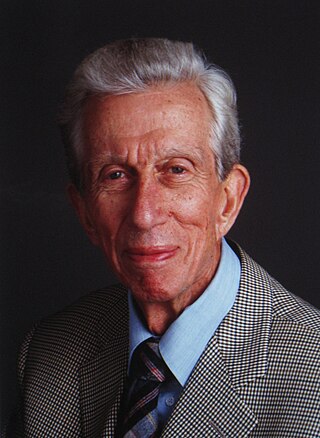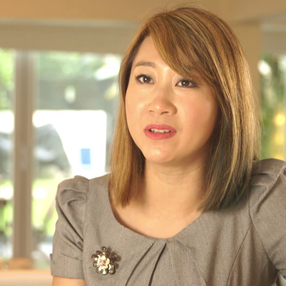Related Research Articles

Carl Gunnar Michael Fant was a leading researcher in speech science in general and speech synthesis in particular who spent most of his career as a professor at the Swedish Royal Institute of Technology (KTH) in Stockholm. He was a first cousin of the actors and directors George Fant and Kenne Fant.
Aravind Krishna Joshi was the Henry Salvatori Professor of Computer and Cognitive Science in the computer science department of the University of Pennsylvania. Joshi defined the tree-adjoining grammar formalism which is often used in computational linguistics and natural language processing.

Xuedong David Huang is a Chinese American computer scientist and technology executive who has made contributions to spoken language processing and artificial intelligence, including Azure AI Services. He is Zoom's chief technology officer after serving as Microsoft's Technical Fellow and Azure AI Chief Technology Officer for 30 years. Huang is a strong advocate of AI for Accessibility, and AI for Cultural Heritage.
The IEEE James L. Flanagan Speech and Audio Processing Award is a Technical Field Award presented by the IEEE for an outstanding contribution to the advancement of speech and/or audio signal processing. It may be presented to an individual or a team of up to three people. The award was established by the IEEE Board of Directors in 2002. The award is named after James L. Flanagan, who was a scientist from Bell Labs where he worked on acoustics for many years.

Roberto Pieraccini is an Italian and US electrical engineer working in the field of speech recognition, natural language understanding, and spoken dialog systems. He has been an active contributor to speech language research and technology since 1981. He is currently the Chief Scientist of Uniphore, a conversational automation technology company.
Nelson Harold Morgan is an American computer scientist and professor in residence (emeritus) of electrical engineering and computer science at the University of California, Berkeley. Morgan is the co-inventor of the Relative Spectral (RASTA) approach to speech signal processing, first described in a technical report published in 1991.
Margaret Martonosi is an American computer scientist who is currently the Hugh Trumbull Adams '35 Professor of Computer Science at Princeton University. Martonosi is noted for her research in computer architecture and mobile computing with a particular focus on power-efficiency.
Susan J. Eggers is an American computer scientist noted for her research on computer architecture and compilers.
Julia Hirschberg is an American computer scientist noted for her research on computational linguistics and natural language processing.

Shrikanth Narayanan is an Indian-American Professor at the University of Southern California. He is an interdisciplinary engineer–scientist with a focus on human-centered signal processing and machine intelligence with speech and spoken language processing at its core. A prolific award-winning researcher, educator, and inventor, with hundreds of publications and a number of acclaimed patents to his credit, he has pioneered several research areas including in computational speech science, speech and human language technologies, audio, music and multimedia engineering, human sensing and imaging technologies, emotions research and affective computing, behavioral signal processing, and computational media intelligence. His technical contributions cover a range of applications including in defense, security, health, education, media, and the arts. His contributions continue to impact numerous domains including in human health, national defense/intelligence, and the media arts including in using technologies that facilitate awareness and support of diversity and inclusion. His award-winning patents have contributed to the proliferation of speech technologies on the cloud and on mobile devices and in enabling novel emotion-aware artificial intelligence technologies.

Pascale Fung (馮雁) is a professor in the Department of Electronic & Computer Engineering and the Department of Computer Science & Engineering at the Hong Kong University of Science & Technology(HKUST). She is the director of the Centre for AI Research (CAiRE) at HKUST. She is an elected Fellow of the Institute of Electrical and Electronics Engineers (IEEE) for her “contributions to human-machine interactions”, an elected Fellow of the International Speech Communication Association for “fundamental contributions to the interdisciplinary area of spoken language human-machine interactions” and an elected Fellow of the Association for Computational Linguistics (ACL) for her “significant contributions toward statistical NLP, comparable corpora, and building intelligent systems that can understand and empathize with humans”.
Biing Hwang "Fred" Juang is a communication and information scientist, best known for his work in speech coding, speech recognition and acoustic signal processing. He joined Georgia Institute of Technology in 2002 as Motorola Foundation Chair Professor in the School of Electrical & Computer Engineering.

Stephen John Young is a British researcher, Professor of Information Engineering at the University of Cambridge and an entrepreneur. He is one of the pioneers of automated speech recognition and statistical spoken dialogue systems. He served as the Senior Pro-Vice-Chancellor of the University of Cambridge from 2009 to 2015, responsible for planning and resources. From 2015 to 2019, he held a joint appointment between his professorship at Cambridge and Apple, where he was a senior member of the Siri development team.

John Makhoul is a Lebanese-American computer scientist who works in the field of speech and language processing. Dr. Makhoul's work on linear predictive coding was used in the establishment of the Network Voice Protocol, which enabled the transmission of speech signals over the ARPANET. Makhoul is recognized in the field for his vital role in the areas of speech and language processing, including speech analysis, speech coding, speech recognition and speech understanding. He has made a number of significant contributions to the mathematical modeling of speech signals, including his work on linear prediction, and vector quantization. His patented work on the direct application of speech recognition techniques for accurate, language-independent optical character recognition (OCR) has had a dramatic impact on the ability to create OCR systems in multiple languages relatively quickly.
Ahmadreza Rofougaran, also known as Reza Rofougaran is an Iranian-American Electrical engineer, inventor and entrepreneur.
Lori Faith Lamel is a speech processing researcher known for her work with the TIMIT corpus of American English speech and for her work on voice activity detection, speaker recognition, and other non-linguistic inferences from speech signals. She works for the French National Centre for Scientific Research (CNRS) as a senior research scientist in the Spoken Language Processing Group of the Laboratoire d'Informatique pour la Mécanique et les Sciences de l'Ingénieur.
Chin-Hui Lee is a Taiwanese information scientist best known for his work in speech recognition, speaker recognition and acoustic signal processing. He joined Georgia Institute of Technology in 2002 as a professor in the school of electrical and computer engineering
Yang Liu is a Chinese and American computer scientist specializing in speech processing and natural language processing, and a senior principal scientist for Amazon.
Dilek Z. Hakkani-Tür is a Turkish-American computer scientist focusing on speech processing, speech recognition, and dialogue systems. She is a professor of computer science at the University of Illinois Urbana-Champaign.
Isabel Maria Martins Trancoso is a retired Portuguese computer scientist specializing in speech processing. She is a professor in the Instituto Superior Técnico, a former president of the scientific council of INESC-ID, the former editor-in-chief of IEEE Transactions on Speech and Audio Processing, and a former president of the International Speech Communication Association.
References
- ↑ Bio of Mari Ostendorf
- ↑ "White House names Stanford's Robert Gray among nation's top engineering mentors". 18 March 2003. Retrieved 27 January 2018.
- ↑ Jurafsky, Dan. "The Spread of Innovation in Speech and Language Processing". YouTube. Retrieved 25 July 2019.
- ↑ Beckman; Hirschberg; Shattuck-Hufnagel (2003). Prosodic Models and Transcription: Towards Prosodic Typology.
- ↑ "UW Team wins international Amazon Alexa Prize for the design of conversational AI" . Retrieved 27 January 2018.
- ↑ "ISCA Fellows 2008". ISCA. Retrieved 26 March 2018.
- ↑ "IEEE JAMES L. FLANAGAN SPEECH AND AUDIO PROCESSING AWARD RECIPIENTS" (PDF). Institute of Electrical and Electronics Engineers (IEEE). Archived from the original (PDF) on June 19, 2010. Retrieved 27 January 2018.
- ↑ "ACL Fellows". ACL. Retrieved 19 December 2018.
- ↑ "New Members Elected to WSAS" (PDF). Washington State Academy of Sciences. 15 July 2019. Retrieved 25 July 2019.
- ↑ "Professor Mari Ostendorf CorrFRSE". Royal Society of Edinburgh. Retrieved 2020-09-23.
- ↑ "National Academy of Engineering Elects 106 Members and 23 International Members". NAE Website. Retrieved 2021-02-10.